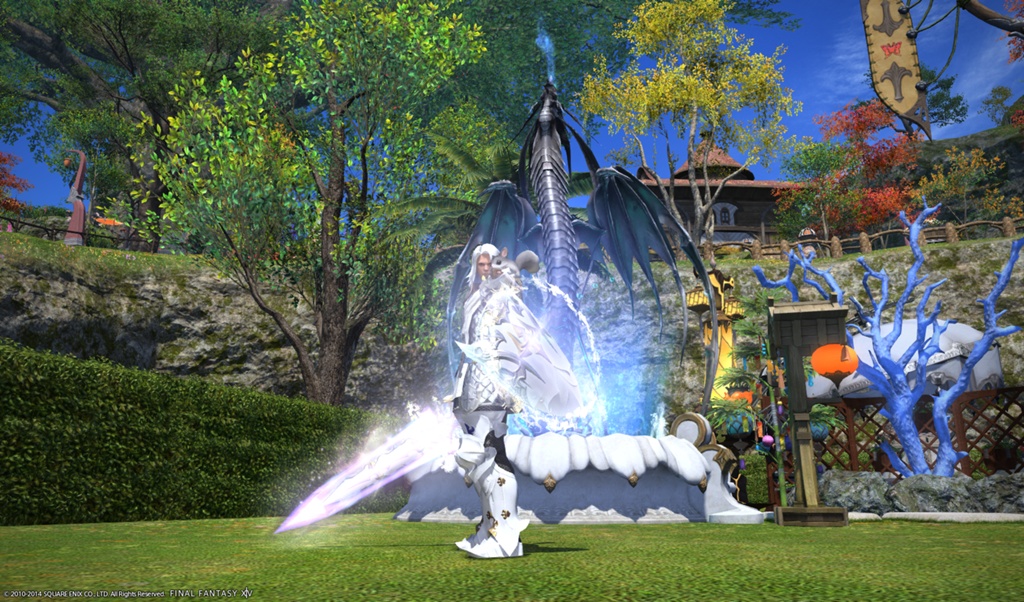The digital realms of online gaming are often vibrant tapestries woven by both developers and their dedicated player communities. In this intricate ecosystem, community-created modifications, or “mods,” frequently serve as threads that enhance the experience, allowing players to personalize their virtual lives. Yet, this creative freedom operates within a delicate framework, one that was recently tested in the beloved Massively Multiplayer Online Role-Playing Game (MMORPG), Final Fantasy XIV (FFXIV). A recent controversy surrounding a popular mod brought to the forefront the perpetual tension between player desire for customization and a developer`s imperative to maintain game integrity, intellectual property, and financial viability.
The Spark: The Mare Synchronos Incident
The genesis of this recent community uproar was the removal of Mare Synchronos, a fan-made modification that allowed players to view customized character appearances of others in real-time, effectively extending personal cosmetic choices beyond one’s own client. For many, this mod fostered a deeper sense of immersion and community expression, transforming individual flair into a shared spectacle. However, its popularity inadvertently positioned it on a collision course with Square Enix, FFXIV`s developer and publisher. Following a directive from the company`s legal representatives, the mod was taken offline. The reaction from a segment of the player base was swift and decisive: a wave of negative reviews, colloquially termed “review-bombing,” descended upon FFXIV’s Steam page, signaling widespread discontent.
The Director`s Dilemma: Yoshida`s Appeal for Understanding
In response to the community`s outcry, FFXIV Director and Producer Naoki Yoshida issued a comprehensive statement, a nearly 2,000-word appeal for understanding that offered a rare glimpse into the complex considerations behind such decisions. Yoshida, a figure widely respected for his transparent communication and dedication to the game, acknowledged his personal tolerance and even admiration for many fan-made creations. He understands the spirit of modding, a long-standing tradition within PC gaming that empowers players to shape their experiences.
However, Yoshida`s address meticulously outlined the boundaries. He drew a clear line against modifications that either violate the game`s inherent design or intent in a detrimental way, or, crucially, expose Square Enix to legal and financial risks. He cited hypothetical, yet tangible, examples:
- Legal Exposure: Mods depicting nude characters, if publicly displayed within the game, could lead to significant legal repercussions in various countries, potentially branding FFXIV as content unsuitable for its intended rating. The implication here is the responsibility a publisher holds for content, even if user-generated, when it appears within their product.
- Economic Integrity: Modifications that replicate or closely mimic paid in-game items and services pose a direct threat to the game`s economic model. FFXIV, like many MMORPGs, relies on the sale of cosmetic items and expansions to generate the revenue necessary for continued development, maintenance, and the creation of new content. When free mods devalue these official offerings, it erodes a critical pillar of the game`s financial sustainability. This is less about greed and more about the practical reality of operating a massive live service game.
Yoshida`s message was a request for balance: respect the long-standing tradition of modding, but also respect the rules and integrity that allow FFXIV to thrive as a professional product and a service to millions. It`s a pragmatic stance, reflecting the corporate responsibility intertwined with creative oversight.
The Digital Fault Line: Why This Matters
This incident transcends a simple dispute over a single mod; it highlights a fundamental “social contract” between players and developers in the evolving landscape of online gaming. Players, having invested countless hours and often money, develop a sense of ownership over their virtual worlds. Customization, particularly in an avatar-centric game like FFXIV, becomes a powerful form of self-expression. Yet, for developers, the game is also intellectual property, a carefully constructed product with legal and financial obligations.
The core of the tension lies in the blurred line between personal client-side modifications (which only affect the player`s view) and server-side implications or public visibility. Mare Synchronos, by making individual customizations visible to others, stepped into the latter category, impacting the shared game experience and, from Square Enix`s perspective, potentially infringing upon their control over the game`s public presentation and economy. It’s an interesting paradox: a mod designed to foster shared visual experience ultimately revealed a chasm in shared understanding.
The Path Forward: A Call for Balance
The FFXIV mod controversy serves as a valuable case study for the wider gaming industry. It underscores the importance of clear communication from developers regarding modding policies and the need for players to understand the complex ecosystem that sustains their favorite virtual worlds. While the desire for boundless creativity is understandable, the realities of intellectual property law and economic sustainability cannot be ignored.
Ultimately, the longevity and health of games like FFXIV depend on a delicate equilibrium. It`s a continuous negotiation where player passion meets developer pragmatism. Yoshida`s appeal is not a rejection of modding, but rather an invitation for the community to recognize the unseen threads—legal, financial, and design-oriented—that hold the fabric of their beloved game together. In this digital frontier, finding a harmonious path forward requires mutual respect and an understanding that even in a world of fantasy, real-world rules and responsibilities apply.

